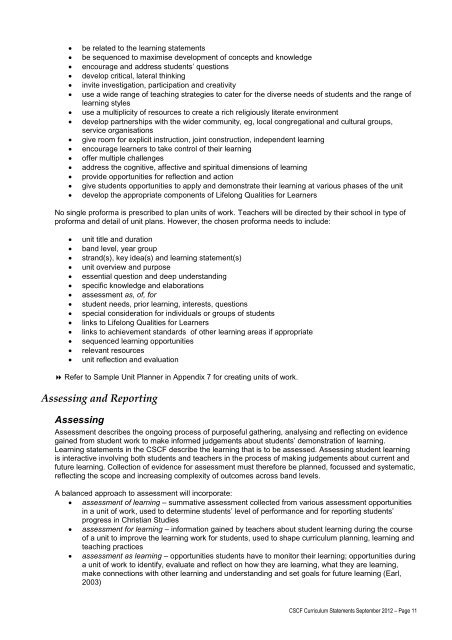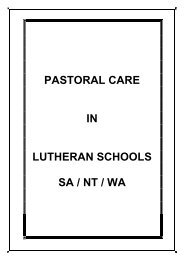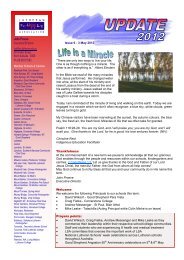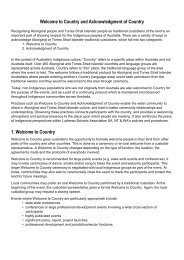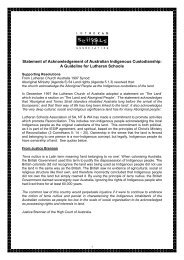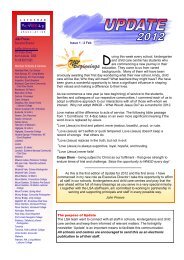2012 CSCF Curriculum Statements.pdf - Lutheran Schools ...
2012 CSCF Curriculum Statements.pdf - Lutheran Schools ...
2012 CSCF Curriculum Statements.pdf - Lutheran Schools ...
You also want an ePaper? Increase the reach of your titles
YUMPU automatically turns print PDFs into web optimized ePapers that Google loves.
e related to the learning statementsbe sequenced to maximise development of concepts and knowledgeencourage and address students’ questionsdevelop critical, lateral thinkinginvite investigation, participation and creativityuse a wide range of teaching strategies to cater for the diverse needs of students and the range oflearning stylesuse a multiplicity of resources to create a rich religiously literate environmentdevelop partnerships with the wider community, eg, local congregational and cultural groups,service organisationsgive room for explicit instruction, joint construction, independent learningencourage learners to take control of their learningoffer multiple challengesaddress the cognitive, affective and spiritual dimensions of learningprovide opportunities for reflection and actiongive students opportunities to apply and demonstrate their learning at various phases of the unitdevelop the appropriate components of Lifelong Qualities for LearnersNo single proforma is prescribed to plan units of work. Teachers will be directed by their school in type ofproforma and detail of unit plans. However, the chosen proforma needs to include:unit title and durationband level, year groupstrand(s), key idea(s) and learning statement(s)unit overview and purposeessential question and deep understandingspecific knowledge and elaborationsassessment as, of, forstudent needs, prior learning, interests, questionsspecial consideration for individuals or groups of studentslinks to Lifelong Qualities for Learnerslinks to achievement standards of other learning areas if appropriatesequenced learning opportunitiesrelevant resourcesunit reflection and evaluation Refer to Sample Unit Planner in Appendix 7 for creating units of work.Assessing and ReportingAssessingAssessment describes the ongoing process of purposeful gathering, analysing and reflecting on evidencegained from student work to make informed judgements about students’ demonstration of learning.Learning statements in the <strong>CSCF</strong> describe the learning that is to be assessed. Assessing student learningis interactive involving both students and teachers in the process of making judgements about current andfuture learning. Collection of evidence for assessment must therefore be planned, focussed and systematic,reflecting the scope and increasing complexity of outcomes across band levels.A balanced approach to assessment will incorporate: assessment of learning – summative assessment collected from various assessment opportunitiesin a unit of work, used to determine students’ level of performance and for reporting students’progress in Christian Studies assessment for learning – information gained by teachers about student learning during the courseof a unit to improve the learning work for students, used to shape curriculum planning, learning andteaching practices assessment as learning – opportunities students have to monitor their learning; opportunities duringa unit of work to identify, evaluate and reflect on how they are learning, what they are learning,make connections with other learning and understanding and set goals for future learning (Earl,2003)<strong>CSCF</strong> <strong>Curriculum</strong> <strong>Statements</strong> September <strong>2012</strong> – Page 11


